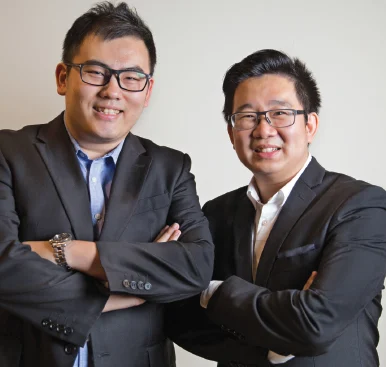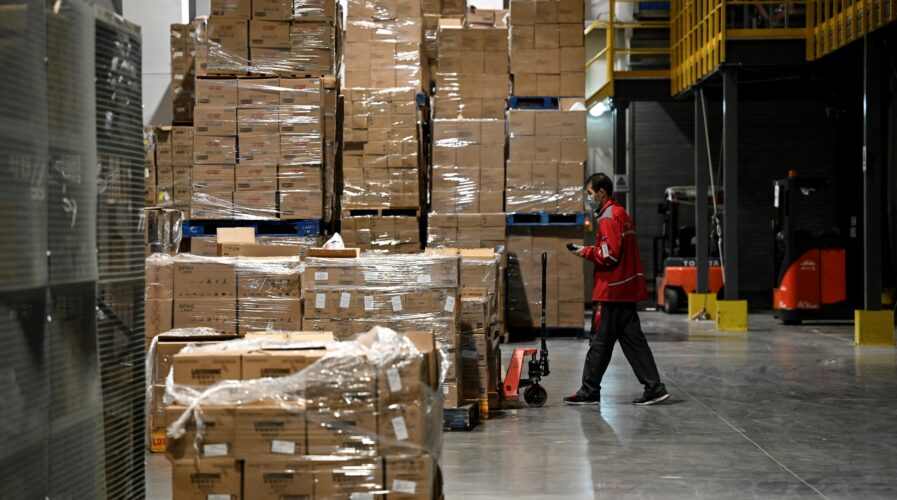By Aaron Raj | 6 April, 2022
E-Commerce fulfilment is the process in the supply chain of ensuring an order is delivered to a customer. This includes receiving and storing inventory, processing orders, picking items, packing boxes, and transporting the items to the customer’s shipping destination.
Globally, the e-Commerce fulfilment market is expected to reach US$ 168.72 billion by 2028, with the growth of e-Commerce in the last two years enabling it. As consumer expectations increase, e-Commerce platforms are investing in fulfilment centres to ensure they are able to meet their customer demands.
Studies show that the major reason for consumers abandoning online shopping carts is delayed shipping. Therefore, established merchants, such as Amazon.com, Lazada and such have started delivering orders in the shortest turnaround time, in some cases within an hour across large cities.
In Southeast Asia, Malaysian homegrown e-Commerce fulfilment company, iStore iSend has already established itself as one of the fastest and smartest e-commerce fulfilment providers. The company now plans to further strengthen its position in the ASEAN markets by penetrating the Japanese market, after solidifying its operations in Thailand and Vietnam.
Despite the country’s differences, the evolution has allowed enhanced dynamism in the e-commerce landscape across countries and has further expanded the scope of e-Commerce, be it through new firms, consumer segments and products demand.
To understand more about iStore iSend’s plans, Tech Wire Asia speaks to Joe Khoo, co-founder and CEO of iStore iSend and Tommy Yong, co-founder and Chief New Initiatives Officer of iStore iSend.
Is there a particular reason for the choice to bring Japanese brands into the Southeast Asia (SEA) market, as opposed to brands from other nations?

Japan is the world’s third-largest economy after the US and China and it is a highly-demanded market due to its innovative technology. Additionally, Japan produces top-notch products and has the finest technology in its products. It has a good reputation for bringing high-quality products.
On top of that, the e-Commerce fulfilment industry is now growing stronger and faster, and it has allowed our business to evolve beyond logistics management to e-commerce management. Compared to when we first started, there was a lack of volume in the market. The adoption of e-commerce has caught on and more businesses have started to grow in both volumes of products and sales.
Due to this, iStore iSend plans to bring Japanese brands into the SEA market. We believe that if we can bring Japanese brands into our market, we could achieve good customer satisfaction and further establish our position in the SEA region.
How do you intend to deal with any competition, especially from Japanese players who come from a strong background in innovative tech?
As we know, Japan’s competitive edge is centered on its technology and innovation. With its advancement in technology, the country also remains one of the most mature markets in the world and one of the most popular destinations for international trade.
However, the country is one of the most challenging markets to penetrate due to its well-developed and advanced technology as well as the innovation that it brings to its products.
Given these circumstances, we feel it is essential to go slowly and conduct extensive market research while we get ready to introduce Japanese brands into the SEA market. It is like starting up a new business from scratch, where a comprehensive strategy is required to understand who our consumers are and how the competition works. The local players in Japan have the upper hand and an added advantage as they understand the inside out of how their market works and how to leverage technology as well as go digital to adhere to the local players there.
However, we also have the upper hand and advantage as we have an in-depth understanding of the SEA culture and market. Hence, we believe that it is essential to conduct proper research and development in order to address the competition that Japan brings and to attract the attention of the brands there to enter our market.
We believe that having an in-depth understanding of the SEA culture and market as well as having an innovative approach to technology, will help us overcome the challenges posed by bringing Japanese brands into our market.
What do you think are likely ways for the e-Commerce industry to evolve in the coming years?
The acceleration of technology has undoubtedly transformed the e-Commerce and logistics sectors, especially due to Covid-19. When we had a few stages of lockdown, businesses that depended solely on daily sales were very much in the dark about when they would be able to operate their businesses.
Due to this, business owners are forced to digitalize their businesses in order to ensure their businesses are still able to operate in restrictive times. The emergence of more adopters has accounted for the noticeable spike in e-commerce vendors on online marketplaces.
In many ways, the evolution has also transformed the e-Commerce sectors and shaped the way consumers connect with brands or vice versa. This transformation has also opened up business opportunities for retailers and has sped up the pace of the industry’s growth. This is because consumers now have access to a range of tools that help them gauge prices, find alternatives, locate stores and receive coupons. How these businesses manage their systems and operations plays such an important and huge role in determining the success of the business.
This is also where it comes in handy – when we understand the trend, we can benefit from that and optimize the tools and services that further empower your business, both in terms of strategy and how you can leverage your strategy.
Having said that, with a little more than ten years of experience in the field, we have seen many e-Commerce businesses rise and fall. As an e-commerce fulfilment solution provider and industry player, we believe that businesses need to shift online and digitalize their brands. We encourage businesses to digitalize their business as it can pave the way, open more doors for opportunities and widen their customer base. We believe this is essential in their journey to grow and upscale their business, especially in this digital era.
In the second part of the interview, Khoo and Yong discuss the trends in the industry as well as the new technologies and challenges in e-Commerce fulfilment.
